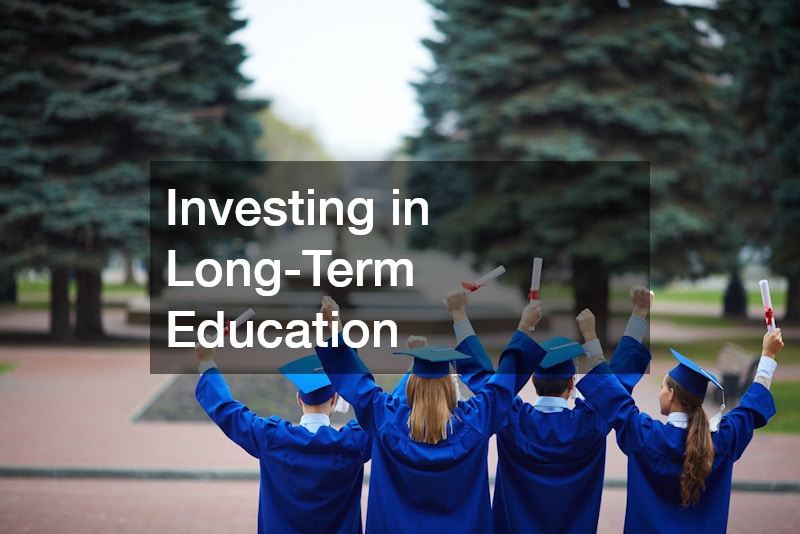Raising a family in the city presents a unique set of challenges and opportunities. The constant hustle, packed schedules, and endless choices can easily feel overwhelming, yet urban life also provides remarkable resources and experiences that suburban or rural living simply can’t match. Parents can access world-class education, family-focused wellness services, exclusive events, and innovative entertainment options. With thoughtful planning, city life can be both manageable and deeply enriching for children and adults alike. This guide offers practical insights to help parents balance education, wellness, and leisure, ensuring their families thrive in an urban environment.
Prioritizing Family Health
Maintaining personal and family health is essential to navigating the demands of city living. Visiting a skilled cosmetic dentist, for instance, can improve both oral health and self-confidence. Regular check-ups and preventative treatments reduce the risk of serious issues later on. When choosing healthcare providers, it is important to consider quality of care, convenience, and recommendations from other parents. Modern techniques and technologies that make treatments less invasive can also reduce anxiety and save time.
In addition to dental care, families can build a proactive approach to wellness by incorporating daily habits such as balanced nutrition, regular exercise, and sufficient sleep. Teaching children about the importance of hygiene and healthy eating from a young age sets the stage for lifelong well-being. Moreover, family activities like weekend bike rides or evening walks can be both fun and health-promoting, creating bonding time while encouraging physical activity. Maintaining routines for yourself also sets a positive example for your children, helping instill healthy habits from an early age.
Caring for Pets
Pets are often an essential part of family life, and ensuring their well-being requires thoughtful planning in a busy urban environment. Reliable veterinarians near me can help families provide high-quality care while reducing stress. Routine check-ups, vaccinations, and preventive care are essential to keeping pets healthy. Beyond medical care, city parents can enrich their pets’ lives with interactive toys, daily walks, and socialization opportunities. Involving children in these activities helps them develop empathy and accountability.
Planning ahead ensures pets can thrive alongside a busy family schedule while enhancing family wellness and providing companionship. Well-cared-for pets contribute to overall happiness and balance in the household, making them an integral part of family life.
Parent-Focused Wellness
Parenthood can be all-consuming, making self-care essential rather than optional. Local mommy makeover services offer targeted options for restoring energy, confidence, and physical wellness, tailored to the needs of busy parents. Parents can also integrate mindfulness practices, meditation, and daily exercise to support mental health. Setting aside regular time for self-care, planning procedures during school breaks, and enlisting family or friends to support recovery periods all help make wellness achievable despite a hectic schedule. Combining wellness services with fitness or nutrition programs can ensure lasting results.
In addition to structured wellness routines, emotional well-being is equally critical. Managing stress through journaling, guided meditation, or breathing exercises can help parents maintain clarity and patience throughout the day. Parents can also consider group wellness classes or workshops, which provide both social support and accountability. Engaging in hobbies or creative outlets, such as painting, writing, or music, allows for mental relaxation and personal expression, fostering a sense of fulfillment beyond parental duties.
Another key aspect of parent-focused wellness is community and social connection. Joining local parent groups, attending wellness-focused events, or participating in workshops can help parents share experiences, exchange advice, and build a supportive network. Social connections contribute to mental health and provide opportunities for learning new strategies for managing family life effectively.
Finally, establishing family-inclusive wellness practices can enhance the overall household dynamic. For example, family yoga sessions, evening walks, or healthy meal preparation together can combine self-care with quality bonding time. Prioritizing personal wellness not only benefits parents but also models healthy habits for children, helping them grow up with a balanced and resilient approach to life.
City life provides numerous opportunities for professional and personal growth. Parents can enhance visibility and credibility through brand building, ensuring their personal and professional reputations reflect integrity and expertise. Engaging in networking, mentorship, and community activities also strengthens connections and opens doors for family enrichment.
Developing a strong personal presence is not only beneficial professionally but also serves as a powerful teaching tool for children. When parents demonstrate professionalism, resilience, and a commitment to personal growth, children learn the importance of pursuing goals while maintaining integrity. Parents can integrate these efforts into daily routines, gradually building influence while balancing family responsibilities.
Engaging in Social and Cultural Events
Urban environments are rich with cultural and social experiences for families. Attending luxury brand events can provide parents with networking opportunities while also exposing children to sophisticated social settings. Participating in family-oriented cultural events, such as art exhibitions or concerts, introduces children to new ideas and expands their horizons. Parents should research upcoming activities and plan schedules in advance to balance cultural engagement with everyday responsibilities.
Exposure to diverse experiences fosters creativity and cultural appreciation in children. Attending these events together encourages conversation about art, music, and history, reinforcing learning in informal settings. Parents can also take advantage of community centers, libraries, and city-run programs that often provide free or low-cost cultural events, ensuring accessibility for families of all budgets. By integrating cultural outings into family routines, parents help children develop curiosity, adaptability, and a lifelong appreciation for the arts.
Choosing the Right Early Education
Selecting a preschool is a foundational step in a child’s academic journey. Parents should evaluate local preschools for curriculum approaches, teacher-to-student ratios, enrichment programs, and opportunities for social-emotional development. Visiting schools in person and speaking with teachers and administrators provides invaluable insight.
Connecting with other families who have children at prospective schools provides real-world insight into culture, expectations, and parental involvement. A strong early education foundation encourages curiosity, creativity, and interpersonal skills, helping children adapt as they transition to elementary school and beyond. Logistics, such as location, hours, and flexibility, also play a critical role in ensuring a smooth daily routine for families.
As children progress, additional academic support can boost confidence and performance. Hiring a private SAT tutor can help older students navigate test preparation while strengthening core academic skills. Tutors can identify gaps in understanding, tailor lesson plans to a student’s learning style, and provide structured practice sessions that reinforce key concepts. Beyond tutoring, parents can reinforce academic growth at home through reading time, educational games, and discussion of real-world topics.
Maintaining a balance between schoolwork and extracurricular activities is essential to prevent burnout. Children who are constantly over-scheduled may struggle to retain information or lose motivation, so it’s important to encourage a healthy rhythm that combines focused study, play, and rest. Establishing consistent study routines—such as a dedicated homework space and set study hours—can help children develop discipline while fostering independence.
Parents can also encourage academic engagement by connecting learning to real-life experiences. For example, cooking together can reinforce math skills through measuring ingredients, while trips to museums or science centers can bring classroom lessons to life. Discussing current events, encouraging problem-solving projects, and exploring hobbies that involve research or creativity can further deepen understanding.
Tracking progress is another key component of supporting academic growth. Parents can monitor grades, test scores, and skill development while setting short-term and long-term goals with their children. Celebrating achievements, no matter how small, helps reinforce motivation and builds self-confidence. Encouraging children to reflect on their learning experiences teaches accountability and critical thinking, helping them understand both successes and areas for improvement.
Finally, collaboration between parents, teachers, and tutors ensures a unified approach to academic development. Open communication allows for tailored strategies that address individual learning needs while keeping children challenged yet supported. By integrating formal academic support, home learning, real-world experiences, and ongoing feedback, parents create a holistic framework that strengthens study habits, nurtures curiosity, and equips children with the skills needed for future academic success and personal growth.
Exploring Weekend Activities
Weekend outings provide families with opportunities to combine learning and leisure. Staying informed about events going on in the city helps parents plan enriching experiences. Families can rotate between free and ticketed activities to maintain variety and involve children in selecting activities for greater engagement.
Well-planned outings allow children to explore their city, develop curiosity, and strengthen family bonds. Parents can enhance the experience by turning each outing into a mini-lesson. For example, museums can include scavenger hunts, parks can be exploration zones for nature study, and cultural festivals can introduce new foods, music, and traditions. This approach combines entertainment with educational value, creating enriching experiences that children remember and learn from.
Making Entertainment Memorable
Entertainment in urban areas has evolved to provide immersive, multi-sensory experiences. A dine in movie theater, for example, allows families to enjoy a meal while watching a film, combining convenience with enjoyment. Families can also enhance outings by reserving seating ahead of time, checking menus in advance for preferences or dietary needs, and exploring seasonal specials or themed events for added excitement.
Thoughtful planning transforms simple entertainment into meaningful and memorable family experiences. Outings can also be opportunities to teach observation, etiquette, and social interaction skills. By creating opportunities for shared enjoyment, parents strengthen relationships while fostering cultural literacy and social awareness in their children.
As children grow, selecting the right school has a lasting impact on academic and personal development. Parents should consider top private school options to ensure quality education and holistic growth. Key steps include researching academic programs, visiting campuses, observing classroom interactions, understanding admission processes, and engaging with other parents and alumni for firsthand insights.
When evaluating schools, it is important to consider not only academics but also extracurricular opportunities, social-emotional learning programs, and support services such as counseling or enrichment classes. For example, some schools may offer advanced STEM programs, performing arts tracks, or language immersion courses that align with a child’s interests and strengths. Engaging in school events like open houses, workshops, and parent-teacher sessions provides insight into the community atmosphere, teaching methods, and the overall learning environment.
Long-term education planning also involves looking beyond the immediate curriculum. Parents can discuss with school administrators how students are prepared for future academic milestones, including standardized tests, college admissions, and leadership opportunities. Understanding how schools nurture critical thinking, creativity, and problem-solving skills can help parents identify the best fit for their child’s learning style.
Parents should also consider the school’s approach to fostering social skills and personal growth. Schools that encourage teamwork, community service, and student leadership prepare children to navigate complex social dynamics and build confidence. Visiting campuses during typical school days allows parents to observe student-teacher interactions, peer collaboration, and classroom engagement firsthand.
Another important aspect of long-term education planning is considering the school’s support for transitions, whether moving from lower to upper grades, or preparing for higher education. Schools that provide mentorship programs, academic counseling, and college preparatory guidance ensure students feel supported throughout their academic journey.
Finally, being involved in your child’s educational experience is essential. Attending school events, volunteering, and maintaining open communication with teachers strengthens the family-school partnership, ensuring that parents are actively engaged in supporting their child’s growth. By combining thorough research, active involvement, and thoughtful consideration of both academic and personal development, parents can set the foundation for lifelong success, equipping their children with the skills, confidence, and resilience needed to thrive academically and socially.
Parenting in the city requires intentional planning, informed decisions, and the ability to balance multiple priorities. By thoughtfully addressing health, education, entertainment, and family wellness, parents can create a lifestyle that nurtures growth, confidence, and joy. From early education to enriching activities and personal wellness, the strategies outlined here provide a roadmap for families to thrive.
Urban living may be hectic, but with proactive planning, families can maximize resources, embrace cultural opportunities, and maintain balance. Each decision—from school choice to wellness routines, weekend activities to enrichment programs—contributes to a child’s development and overall family harmony. By integrating these strategies, city parents can cultivate a vibrant, fulfilling family life in which children flourish, parents feel supported, and lasting memories are made together.








